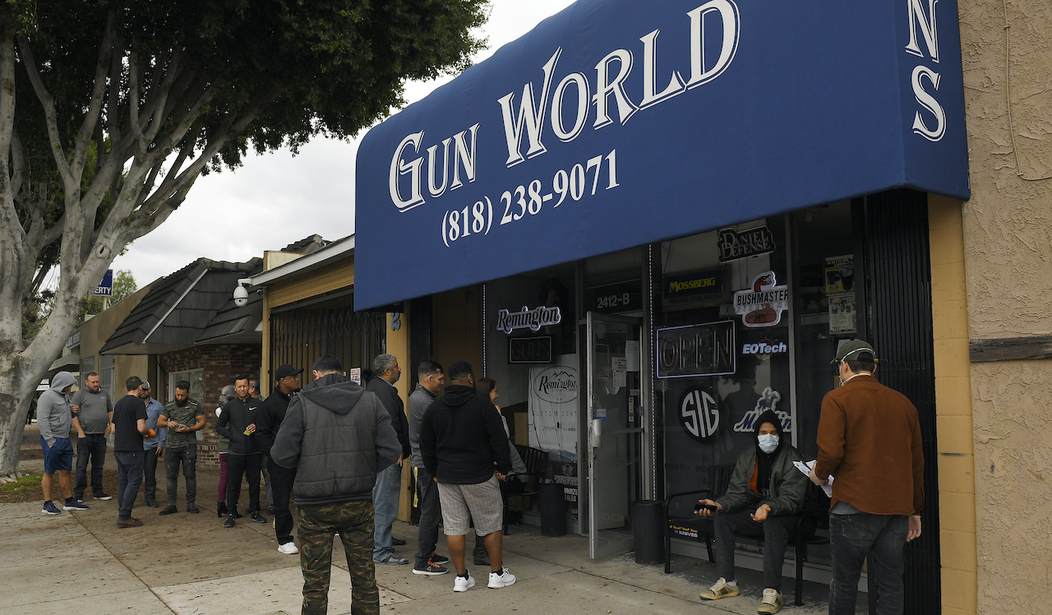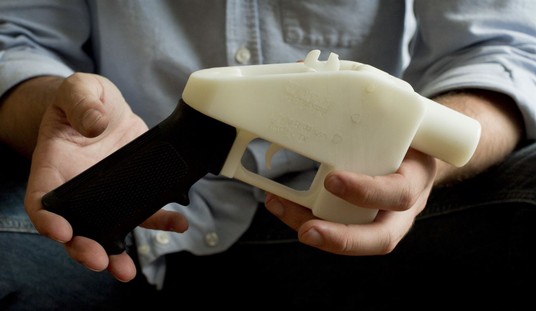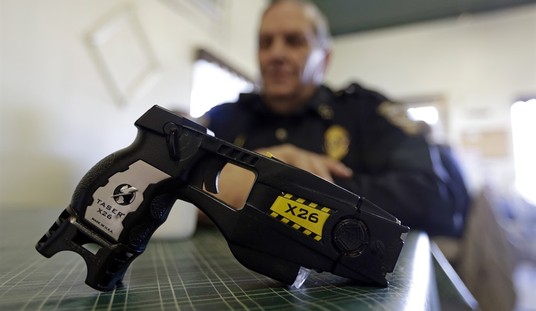California already imposes a 10-day waiting period on gun sales, as well as background checks on every firearm transfer and commercial sale of ammunition, bans on so-called assault weapons, and prohibitions on the sale of many models of semi-automatic pistols that are not on the state’s approved roster of handguns, but those restrictions aren’t enough for anti-gunners in Los Angeles County and southern California, who are actively working to keep any new gun stores from opening their doors.
As the Los Angeles Times reports, some cities like Burbank have imposed moratoriums on new gun stores while officials draft zoning laws that will block any would-be retailers setting up shop, while other communities have already imposed draconian restrictions on where stores can operate under the theory that if folks can’t legally buy a gun, criminals won’t be able to get their hands on one illegally as well.
Researchers have begun to explore the influence of firearms dealers on nearby violence, and their findings are complicated. There’s little evidence that barring retailers from certain neighborhoods or requiring them to install video cameras, for example, can significantly drive down gun violence.
Only large-scale changes in the number of firearms dealers across multiple neighboring counties had a meaningful impact on local gun homicides, the researchers found.
“The average effect is actually quite small,” said David Johnson, associate professor of economics at the University of Central Missouri.
And yet new regulations keep coming.
Efforts to keep gun stores out of particular cities or neighborhoods are rooted in an assumption that more dealers equals more shootings. It’s a commonsense theory, given that most guns are sold by a licensed dealer before ending up on the streets and that people often purchase guns near their homes.
A report this year by the federal Bureau of Alcohol, Tobacco, Firearms and Explosives found that between 2017 and 2021, only about one-third of the guns traced by law enforcement after being used in crimes were recovered within 10 miles of the dealers that sold them.
Johnson’s 2021 study found that one additional dealer per 100 square miles in a county corresponds with a 2% increase in gun homicides in that county two years later. When the number of dealers in neighboring counties also rises at the same rate, the increase in gun homicides jumps to 4%.
The Times claims to have corroborated Johnson’s findings with their own investigation, but I’m skeptical that even the modest homicide increase Johnson reported can be traced solely to gun dealer density. Homicide rates are hardly static, after all, and as the ATF report indicates, most firearms that are traced by law enforcement have traveled far beyond the location where they were originally purchased at retail.
According to the Times, “achieving a meaningful reduction in homicides in L.A. County would require more than 160 cities across Los Angeles, its four neighboring counties and their nearly 35,000 square miles to combine efforts to dramatically reduce the number of gun retailers in the region.” Yet Los Angeles has seen an 18 percent decline in homicides this year, while murders in Long Beach are down by 43 percent (through September). I don’t know about you, but I’d call that a pretty meaningful reduction in homicides, and it’s taken place without drastically reducing the number of FFLs in the area.
The crackdown on new gun stores, however, is real. Though the new zoning laws and restrictions are couched in terms of public safety, all too often the real impetus appears to be a general hostility toward gun ownership and gun sellers. In Torrance, Jack Brandhorst ran headlong into the anti-gun NIMBYism when he wanted to relocate his current store from an industrial park in nearby Carson to a retail location in the heart of downtown Torrance. After originally winning approval for the move, the zoning commission and city council ultimately rescinded their decisions and denied Brandhorst the necessary permits after complaints from a handful of residents. The city then went even further by imposing new zoning laws for the downtown area to ensure that no other store could open there in the future.
“These City Council people placated to the squeaky wheels,” he said afterward. “There’s no law or rule that limits gun stores in that area.”
Shortly after the November decision, Torrance’s council had city staff study downtown zoning regulations. In May, after reviewing the staff’s findings, the council approved a new restriction on where gun dealers can operate.
As of June, the regulation stated, a special development permit is no longer needed to open a business in downtown Torrance. But it also enumerated a list of business types that are no longer allowed downtown.
The list includes establishments such as drive-through restaurants, check-cashing shops — and gun stores.
The Torrance city council members may have given themselves some legal cover by including other kinds of retailers in their new prohibition, but honestly they didn’t even need to do that to get away with their restrictions. The Ninth Circuit ruled several years ago that local governments can adopt zoning restrictions that are explicitly designed to block new gun stores from opening, because (in their words) there’s no right to sell a firearm even if we possess the right to keep and bear them. Teixeira v. Alameda County was decided pre-Bruen, however, and it may be time for a new challenge, especially with these new anti-gun store efforts underway in southern California.









Join the conversation as a VIP Member